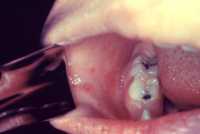Alzheimer's - Dementia, Author Interviews, Genetic Research / 31.07.2019
Alzheimer’s: Genetic Variants Mediate Effects of Poor Diet in Cognitive Decline
MedicalResearch.com Interview with:
Dr. Amy Dunn, PhD
Kaczorowski lab
The Jackson Laboratory
MedicalResearch.com: What is the background for this study? What are the main findings?
Response: Environmental factors, such as a poor diet, are known risk factors for Alzheimer’s disease. But the mechanisms are complex, and it is not known how such environmental perturbations interact with individual genetic variation to confer disease risk. Previous studies have not adequately addressed how the combination of genetic variant and environmental factors combine to alter cognitive response to a poor diet.
To investigate gene-by-environment interactions, we fed either a normal diet or a high-fat diet to a genetically diverse Alzheimer’s disease mouse model population starting at six months of age and monitored metabolic and cognitive function.
We observed accelerated working memory decline in the mice on the high-fat diet after eight weeks, with substantial gene-by diet effects on both cognitive and metabolic traits.
Metabolic dysfunction was more closely related to cognitive function in mice carrying Alzheimer’s mutations than in those without. Interestingly, the high-fat diet affected metabolic function differently in female versus male mice. (more…)



![MedicalResearch.com Interview with: Regis Goulart Rosa, MD, PhD Responsabilidade Social - PROADI Hospital Moinhos de Vento MedicalResearch.com: What is the background for this study? Response: The debate about visiting policies in adult ICUs is of broad and current interest in critical care, with strong advocacy in favour of flexible family visitation models in order to promote patient- and family-centred care. However, the proportion of adult ICUs with unrestricted visiting hours is very low. Data from the literature show that 80% of hospitals in the United Kingdom and USA adopt restrictive ICU visiting policies. Among ICUs with restrictive visiting hours, published studies show that the daily visiting time ranges from a median of 1 hour in Italy to a mean of 4.7 hours in France. In agreement with this scenario, most adult ICUs in Brazil follow a restrictive visitation model, in which family members are allowed to visit the critically ill patient from 30 minutes to 1 hour, once or twice a day. These restrictive visitation models have been justified by the theoretical risks associated with unrestricted visiting hours, mainly infectious complications, disorganization of care, and burnout. Controversially, these risks have not been consistently confirmed by the scarce literature on the subject, and flexible ICU visiting hours have been proposed as a means to prevent delirium among patients and improve family satisfaction. MedicalResearch.com: What are the main findings? Response: Disappointingly, studies evaluating the effectiveness and safety of flexible ICU visiting hours are scarce. To date, no large randomized trials have assessed the impact of a flexible visiting model on patients, family members, and ICU staff, and this evidence gap may constitute a barrier to the understanding of the best way to implement and improve ICU visiting policies. In the present pragmatic cluster-randomized crossover trial (The ICU Visits Study), we engaged 1,685 patients, 1,295 family members, and 826 ICU professionals from 36 adult ICUs in Brazil to compare a flexible visitation model (12 hours/day plus family education) vs. the standard restricted visitation model (median 90 minutes per day). We found that the flexible visitation did not significantly reduce the incidence of delirium among patients, but was associated with fewer symptoms of anxiety and depression and higher satisfaction with care among family members in comparison to the usual restricted visitation. Also, the flexible visitation did not increase the incidence of ICU-acquired infections and ICU staff burnout, which are major concerns when adopting this intervention. MedicalResearch.com: What should readers take away from your report? Response: Considering the evidence suggesting that most adult ICUs restrict the presence of family members, our results provide useful and relevant information that may influence the debate about current ICU visitation policies around the world. First, a flexible visitation policy that permits flexible family visitation in ICU (up to 12 hour per day) is feasible, given the high adherence of participant ICUs to implementation in The ICU Visits Study. Second, the flexible family supported by family education is safe regarding the occurrence of infections, disorganization of care or staff burnout. Third, family members - a commonly missing piece of the critical care puzzle - seem to benefit from the flexible visitation model through higher satisfaction with care and less symptoms of anxiety and depression. MedicalResearch.com: What recommendations do you have for future research as a result of this work? Response: Future research might focus on the following topics: 1) methods of implementation of flexible visiting models in ICUs; 2) Family support interventions in the context of flexible ICU visiting hours (e.g.: psychological and social support, support for shared decision making, peer support, and comfort); and 3) How flexible ICU visiting hours affects patient, family member and staff outcome at long-term. Disclosures: The ICU Visits study was funded by the Brazilian Ministry of Health through the Brazilian Unified Health System Institutional Development Program (PROADI-SUS). Citation: Effect of Flexible Family Visitation on Delirium Among Patients in the Intensive Care Unit [wysija_form id="3"] [last-modified] The information on MedicalResearch.com is provided for educational purposes only, and is in no way intended to diagnose, cure, or treat any medical or other condition. Always seek the advice of your physician or other qualified health and ask your doctor any questions you may have regarding a medical condition. In addition to all other limitations and disclaimers in this agreement, service provider and its third party providers disclaim any liability or loss in connection with the content provided on this website.](https://medicalresearch.com/wp-content/uploads/hospital-ICU-intensive-care.jpg)




























 Yaakov Hoffman, PhD.
Senior Lecturer and Clinical Psychologist
Interdisciplinary Department of Social Sciences
Max & Anna Webb St. Ramat-Gan, Israel, 5290002
MedicalResearch.com: What is the background for this study?
Foundation: This study was conceptualized during a conversation we had, namely, Dr. Yaakov Hoffman, Interdisciplinary department of social sciences, Bar Ilan University, and Professor Menachem Ben-Ezra School of Social Work, Ariel University, following the release of the Antman movie. We are both psychologists who are also avid Marvel superhero fans. In this meaningful conversation we discussed the issue of fear of insects which led to the idea that positive exposure to phobic stimuli (exposure to spider or ants) within the context of Marvel superheroes will lead to robust reduction in phobic symptoms. As most of the conventional treatments for specific phobias use exposure to the phobic stimuli in neutral contexts, we thought that framing the exposure in a positive fun, albeit fantasy context would yield robust results, as well as perhaps reducing stigma.
Yaakov Hoffman, PhD.
Senior Lecturer and Clinical Psychologist
Interdisciplinary Department of Social Sciences
Max & Anna Webb St. Ramat-Gan, Israel, 5290002
MedicalResearch.com: What is the background for this study?
Foundation: This study was conceptualized during a conversation we had, namely, Dr. Yaakov Hoffman, Interdisciplinary department of social sciences, Bar Ilan University, and Professor Menachem Ben-Ezra School of Social Work, Ariel University, following the release of the Antman movie. We are both psychologists who are also avid Marvel superhero fans. In this meaningful conversation we discussed the issue of fear of insects which led to the idea that positive exposure to phobic stimuli (exposure to spider or ants) within the context of Marvel superheroes will lead to robust reduction in phobic symptoms. As most of the conventional treatments for specific phobias use exposure to the phobic stimuli in neutral contexts, we thought that framing the exposure in a positive fun, albeit fantasy context would yield robust results, as well as perhaps reducing stigma.